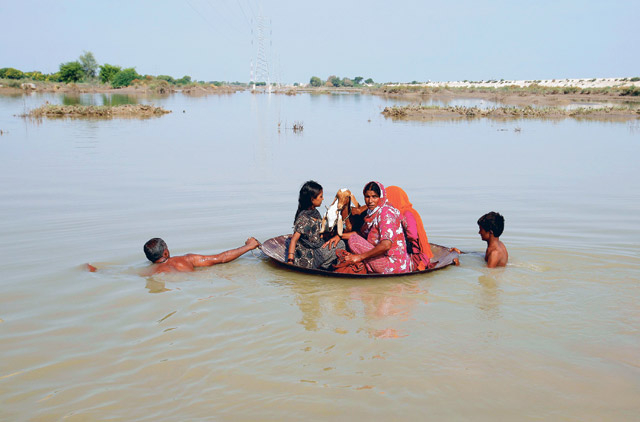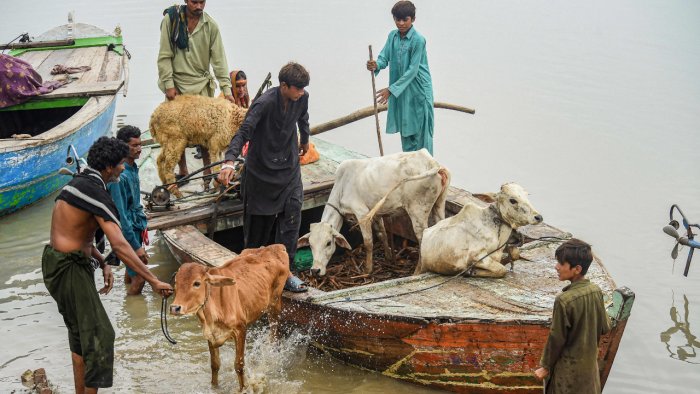Experts have suggested that the devastating floods in Pakistan should serve as a “wake-up call” to the globe about the dangers posed by climate change.
A climate scientist has warned BBC News that the record-breaking rainfall would be devastating for any country, not just poorer nations.
The human toll is clear: on Friday alone, 2,000 people had to be rescued from the floodwaters, and politicians are warning of food shortages because about half of the country’s crops were destroyed.

All around the country, people are feeling a strong sense of injustice. Despite contributing less than one percent of the world’s greenhouse gases to global warming, Pakistan is particularly sensitive to the effects of climate change due to its location.
This week, Climate Minister Sherry Rehman stated, “Literally, one-third of Pakistan is flooded right now, which has exceeded every threshold, every norm we’ve observed in the past.”
Two major weather systems collide over Pakistan, making this country’s climate particularly extreme. One can bring monsoon rains while the other can induce extreme heat and drought, as the one in March.
Most Pakistanis are located near the Indus River, which can get dangerously high and flooded during the monsoon season.
As temperatures rise, we may expect stronger monsoons, and the scientific evidence connecting the two is straightforward. More water is being evaporated from the oceans and the air as a result of rising temperatures caused by global warming. Because warmer air is capable of holding more moisture, monsoon rains tend to be heavier.
Scientists expect an increase in average rainfall during the Indian summer monsoon season as a result of climate change, as explained by Anja Katzenberger of the Potsdam Institute for Climate Impact Research.
Nonetheless, Pakistan is especially vulnerable to the consequences of climate change because of its enormous glaciers. Northern areas are often called the “third pole” because they have more glacial ice than the polar regions.
Mahnur is MS(development Studies)Student at NUST University, completed BS Hons in Eng Literature. Content Writer, Policy analyst, Climate Change specialist, Teacher, HR Recruiter.










